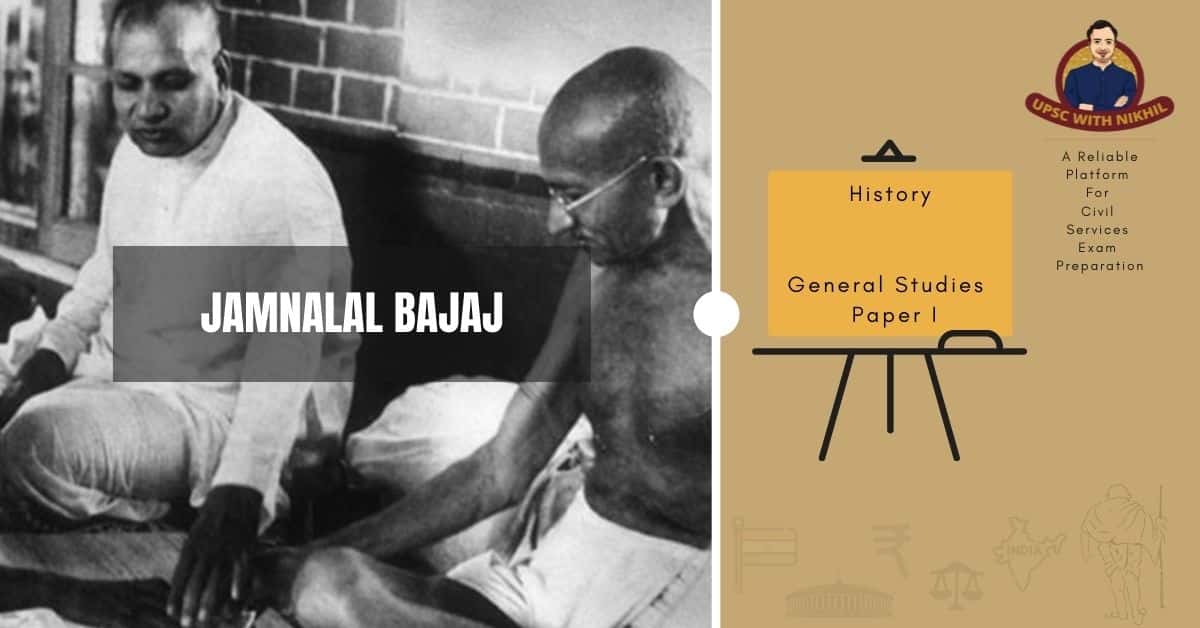Jamnalal Bajaj
"It is not kingdom I desire, nor heaven, nor release from rebirth; what I desire is the destruction of the pains of creatures scorched by suffering."
'Honesty over profits, action over words, and the common good over personal gain' was Jamnalalji's motto. Gandhiji 'adopted' him as his fifth son since he exemplified Mahatma Gandhi's principles to such an extent.
FACTS ABOUT HIS LIFE
• Jamnalal was born in Rajasthan near Sirkar.
• He was born in a well off Aggarwal family.
• He was adopted as the grandson by a rich and famous trader in the British India, Seth bajaj and his wife.
• Jamnalal got involved in his adoptive family's family company when he was old enough, under the mentorship of Seth Bachhraj.
• During this time, he learned how to be a tradesman, keep meticulous records, and buy and sell commodities.
• By the time Seth Bachhraj died, he had achieved great success in his field. Jamnalal established what would become the Bajaj group of industries in 1926.

• During WWI, the British government appeased and honoured native tradesmen in order to raise finances. Jamnalal was made an honorary magistrate.
• When he donated money to the war fund, he was given the title of Rai Bahadur, which he later relinquished during the 1921 non-cooperation movement.
• In 1920, Jamanalal was elected chairman of the welcoming committee for the Indian National Congress's Nagpur session.
• In 1921, he renounced the title of Rai Bahadur bestowed by the British government and joined the non-cooperation movement.
• In 1923, he took part in the flag satyagraha in Nagpur, defying a restriction on flying the national flag, and was imprisoned by British forces. This garnered him widespread acclaim.
• He founded the Satyagraha Ashram in Wardha in his fight against the British, and he took part in the Non-Cooperation Movement of 1921, the Nagpur Jhanda Satyagraha in 1923, the Simon Commission boycott in 1929, the Salt Satyagraha in 1930, and the anti-war movement in 1941. He also served a number of lengthy prison sentences, opting for C Class prisoner status.
• Gandhi was to go to Wardha and make it the hub of his efforts, according to him. Gandhi came to Sevagram, a small village near Wardha, after the Dandi March in April 1930, because he wanted to be closer to the rural population. Gandhi pledged that he would not return to Sabarmati Ashram until the country was free.
• Gandhi Seva Sangha, a group of employees who devote their time to constructive activity, elected Jamanalal as its president.
• In 1933, he was elected to the Congress Working Committee and thereafter to the position of Treasurer of Congress.
• Along with C. Rajagopalachari, he formed the Dakshin Bharat Hindi Prachar Sabha in order to promote Hindi learning throughout the country.
• He was the first Treasurer of the Managing Committee of Jamia Millia Islamia, New Delhi, starting in 1927. While still acting as treasurer, he became a life member of the university in 1928.
• The Jamnalal Bajaj Foundation was founded in 1976 with the goal of promoting Gandhian constructive programmes and aiding constructive workers dedicated to the national cause. The foundation has established four annual prizes, each with a cash prize of Rs. 500,000/- or its foreign currency equivalent, a citation, and a trophy.


